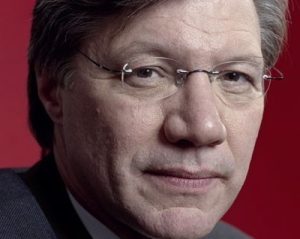Session Description:
Techonomy Policy distilled. What we’ve learned and what it means moving forward.
Kirkland: As I said this morning, trying to sum up a sprawling conversation like we’ve had today, and as interesting as it’s been, is a mug’s game, but Kate and I are going to do it anyway. And I would also like to point out that this day has been rich with terminology. Craig Mundie’s wonderful panel on the FCC, I heard him use the phrase pseudo-perpetual leases spectrum. In some ways, I’d like to point out that this is a pseudo parting shot because there’s a wonderful panel coming after us, so we’re not going to sum up everything. But with that in mind, Kate, take it away.
Jackson: Today we’ve heard about a lot of technologies, and we’ve heard a lot from leaders who are shaping the policy to manage those technologies, and then we’ve heard from the innovators, both behind the technology themselves, behind informing the policymakers, and then behind making it real, we’ve heard from government leaders who are doing the hard work of making this operational. And if you think about it, that continuum is about policy, innovation, and operations, and at any point in that spectrum we need business and the government to come together.
So we can take the example of drones, which we were hearing about earlier, drones from a policy perspective. Is that about safety? Is that about economic development? Is that about freedom, the freedom to use your tools? Policymakers have to wrestle with those three, and they’re going to be better served by having manufacturers and innovators and lawyers and others in rooms like these to handle it.
Or you take that from the perspective of innovation. The point was made that that drone technology may have been produced in China because we didn’t have the regulatory framework to handle making it here at home. So innovation is about creating the space, and government has a role in that too for ideas.
But drones can also be put to work for government, whether it’s the deployment of healthcare services or use in farming and technology so that we can create greater crop production, any of these tools—blockchain that we heard about earlier today—you realize also are moving so quickly that unless policymakers are as adept and astute and engaged as the members of the FCC we heard from today, the members of 18F, IDEA Labs at HSS who are taking these bold steps into new territories to serve citizens with consistency and fairness and freedom and a budget, we can’t get there.
So I think there’s in a way a tension between that continuum of policy innovation and then the hardcore operations of making this work. We heard a lot of frustration today about the way that government does procurement. A lot of people in this room are saying we need agile procurement, we need innovation, and we room for piloting to scale. But citizens on the other hand often want stability, even if that comes at the cost of what might be a longer term benefit from change.
So I think that some of the insights that I heard from those who stopped me in the hall or wanted to express a question during the sessions was, 1) we need to be on the pulse of these innovations; 2) we need to help government make it operational; and 3) government leaders need to signal to us when they need help with that policymaking, bring us to the Hill, bring us to their states and local governments so we can help inform them, because as David Edelman said at the beginning, it’s no longer okay to be a government leader and not know how to speak technology. You wouldn’t say, “Ah, that economics stuff, totally wish I got it, but I don’t at all.” And no longer can you say, “Oh, that technology stuff, those servers, that Internet, drones, what? Too much for me. I’m going to go just make my policy and run for office.” You can’t play that game anymore.
So thank you for putting together this room. And I think it will be a critical forum going forward.
Kirkland: So as Kate just showed you, at McKinsey—I’ve been there about seven years and I’ve learned that we’re very fond of the tripartite view of the world. We put things into threes. My old colleague, Dick Foster, said if McKinsey wrote a detective novel it would begin like this: “The butler did it, and there are three reasons why.”
I was thinking about today and reflecting on it, and I kept thinking about a series of dualities and contradictions that I heard. And it struck me this morning when, in a brilliant piece of programming I think, Andrew from PDF was up here giving his rather dystopian vision of how we’re building a panopticon, as I believe he called it, followed up by our friend from SmartThings, who played a little family-friendly video of the potential benefits of the Internet of Things. And I think both those things can be true. And just throughout the day I kept hearing this kind of sense of these contradictions. Horacio from Microsoft said there are two things that can kill the Internet: overregulation and under-regulation. And Brad from Union Square Partners described data, which we heard a lot about today, as both an asset, which is clearly is, and also a liability.
There was a strong theme, which David and others asserted many times, that currently the US and our big tech giants are dominant out there in the world, but there’s also this notion, as we heard when he asked the question about China, there was a consensus up here on the panel that actually the Chinese, if you look out in 10 years, may well be dominant. And as Lisa explained to us in her panel on drones, unless we get our act together, other countries are racing ahead in terms of putting drones to productive use.
We heard there’s a global schism when it comes to ICANN, which is regulating the domain names on the Internet, and there’s two camps, one of which thinks it should remain private, another which thinks the government should get more involved. And while there was an assertion from Fadi that this Jedi mind trick of the US pulling out would somehow persuade everyone else to lay back, I think that’s an open question. It struck me as an important one to resolve.
And then finally, I think we heard a lot about the power of technology innovation to create this kind of frictionless new world where just remarkable things can happen, and I was really struck by Jerry’s vision about the blockchain—which I think of as bitcoin, but the blockchain as he explained it is a way potentially for emerging countries to actually leapfrog the whole sort of payment system we currently have. And contrast that with the vision our friends from BGOV laid out of the growing world of what we at McKinsey call the market state governments in influencing the value at risk in more and more companies and more and more industries. So an interesting tension there.
I think to resolve it, I don’t think we had a simple, clear set of policies that you can sort of point to and say this is how we’re going to resolve those contradictions. But I do think there were some clear themes that came through. One—and this is a three-part bucket—do the right thing. This is mainly for the US, which is what we’ve spent most of our time on today, but I think it applies elsewhere. We heard this morning we should be investing in long-term R&D. We need to create a national broadband.
Second bucket, we need to improve the measurement of our economy. We heard Phil Zelikow pointing out that we’re a none of the above economy, a no-collar economy, we’re not measuring the technology changes that are reshaping our economy correctly, and so we may be misapply policy to some of the solutions that we think are out there.
And I think the third bucket that we really spent a lot of time talking about today was the need to spur continued regulatory innovation, to be flexible. Craig Mundie’s panel on the FCC, which I only caught the last bit of, but I heard several people talking about it, was really interesting in terms of the innovative approach to auctioning off spectrum in a different way.
I thought Arun from NYU’s panel on the sharing economy was fascinating in terms of how he laid out the idea that maybe one way we deal with the regulatory challenges there is look more to self-regulation, or to local regulation, the notion of homeownership associations dealing with some of these issues rather than having a top-down government policy.
I liked Kitty’s example of a social media charter in the UK, of getting the parties together in an area where there’s real tension and real contradiction, again, between the regulatory mandate and the reality of the world that financial institutions are living in and seeing if you can come up with a consensus.
And finally, there was this notion of ‘polivation,’ which, David, as the man who coined Techonomy, of course you love that. It’s another one of those words where you push two words together. But it’s a very cool concept because I think it’s really one of the themes of the day, which is that we’ve got to get policymakers and innovators at the table if we’re going to come up with the right answers for the kind of flexible, adaptive regulatory framework we need.
And the end result of all this, I think, to go back to where we began, will be to, if we do this right, deliver on two things that I think Vint Cerf laid out at the beginning as what should be our first principles and our goals. First, let’s do things that create more freedom of choice; and second, let’s make sure that when we collaborate, we do so to show the world that the result is not a zero sum game, but a positive sum game where we all can win. So I thought that was a terrific sort of set of themes for us to reflect on as we go away.





